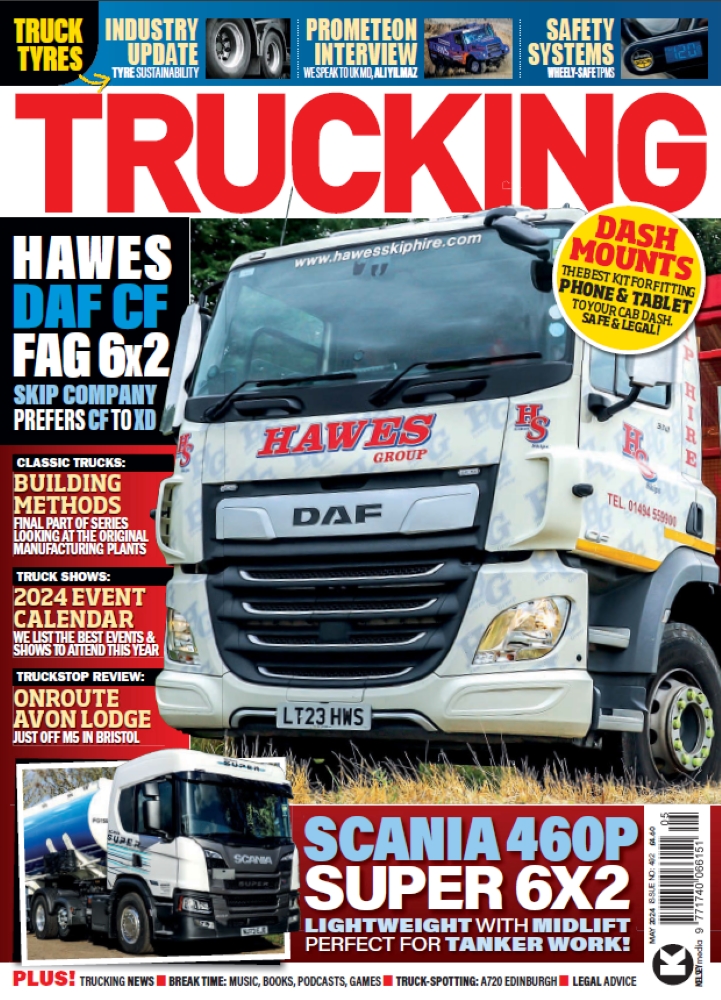In some ways, it’s a shock (pun not intended) that Volta Trucks, makers of the world’s first purpose-built 16-tonne electric truck, filed for bankruptcy. The Volt Zero had drawn praise from everyone involved in its commercial trials and boasted an impressive range. However, the company has now joined the rapidly growing list of specialist electric vehicle manufacturers who have pulled the plug on their vans and trucks.
The switchover to electric vehicles for the final mile will happen. Royal Mail, for example, has already taken delivery of its 5,000th electric vehicle (EV) for its delivery and collection fleet. However, it’s a market that is proving difficult to penetrate for specialist manufacturers, particularly for larger vehicles. As the growing roll call of failed commercial electric vehicle manufacturers shows only too well, few specialist startups can get the funding to match their ambitions.
Volta had a good product and a healthy list of potential customers engaging with its testing programme, including Marks & Spencer, DB Shenker and DSV. It all felt like something of a British triumph – Volta’s engineering and development was largely carried out at sites in the UK. However, this summer’s collapse of its battery supplier Proterra (itself a maker of electric commercial vehicles) severely disrupted its supply chain.
Volta is far from being the first electric commercial vehicle manufacturer to fail and won’t be the last. As early as 2015, alarms should have sounded in the highly charged world of electric van manufacturing. That’s when Smith Electric Vehicles, a respected UK pioneer in electric commercial vehicles since the 1920s, finally closed its UK and European operations. Its US counterpart continued production until 2017. It still has a website in the US, but there are few signs it has produced anything since then.
Closer to home, this year the Banbury-based electric van pioneer Arrival announced it was laying off 800 of its workers as it switched its focus to the American market. It’s a big anticlimax from the excitement of 2022, when it produced its first production verification vehicle from its Bicester Microfactory. It’s thought the company will focus on plans for its new XL van in the US, although it is currently concentrating on refinancing.
The reason for Arrival’s, erm, departure to the other side of the pond isn’t hard to spot. The US Government has introduced huge perks for anyone buying American under the guise of green policies. Its $500bn Inflation Reduction Act aims to bring down the cost of clean technologies, accelerate renewable energy uptake and development, support state efforts for electrification and energy efficiency, incentivise EVs, build charging infrastructure, and support greenhouse gas reduction programs – among other things. However, all these incentives are only available for US-sourced tech.
Other specialist electric van and truck manufacturers have had to call it a day. These include US-based Electric Last Mile Solutions (ELMS), which re-worked Wuling Chinese vehicles for the US market, and Lordstown, a high-profile pick-up truck manufacturer based in a former GM plant in Ohio. It was once praised for preserving jobs by former President Donald Trump.
Therefore, it would seem the UK and global demand for commercial EVs, particularly for urban deliveries, is not as great as anticipated. However, that isn’t the case. UK battery electric van registrations grew 18.9% in August, up 16.4% on the same period in 2022.
So why are all these start-up EV CV specialists failing? Most retailers and couriers are playing it safe and buying electric versions of existing commercial vehicles rather than new specialist vehicles from startups. The UK is now a centre of electric van production for many long-established brands. A £100m investment has been made in EV production at a former GM plant at Ellesmere Port. Last month, production started there on Vauxhall Combo Electric, Opel Combo Electric, Peugeot e-Partner, Citroën ë-Berlingo and Fiat E-Doblò vans. These are all part of the new Stellantis conglomerate’s Pro One range.
‘Perhaps it’s unwise to write off specialist electric commercial vehicle production in the UK just yet. The Essex-based electric vehicle company Tevva delivered its first 7.5-tonne battery-electric truck to Kinaxia Logistics in September 2022. In January this year, it won EC approval for its new truck. Future customers could include Travis Perkins, Expect Distribution and Royal Mail. There’s no hiding that Tevva has also had its share of financial issues, and a merger with ElectraMeccanica has just fallen through. However, vehicle deliveries continue, and the trucks get good user feedback. Let’s hope Tevva can buck the trend and keep innovative, full-scale, larger EV truck manufacturing on course in the UK.
For more information visit ParcelHero: www.parcelhero.com






